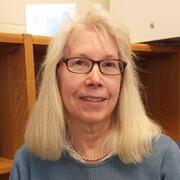Associate Professor, Department of Medicine
Cardiologist, Beth Israel Deaconess Medical Center
Chair, Diversity and Inclusion Committee, National American Heart Association; past chair: Lipid Committee, National American Heart Association; Director, NHLBI Specialized Center of Clinically Oriented Research in Vascular Injury, Repair and Remodeling
I am a general and preventive cardiologist at Beth Israel Deaconess Medical Center where I see patients with lipid disorders, diabetes, hypertension and cardiovascular disease with a focus on women’s health. My research has involved clinical trial work including a large trial of omega-3 fatty acids and quantitation of coronary plaque using computed tomographic coronary angiography. Our results show benefit of omega-3 fatty acids in preventing progression of albuminuria in patients with type 2 diabetes; improving physical fitness, decreasing pain and stiffness and preventing joint replacement at 30 months; and preventing progression of coronary plaque. The research focuses on resolution of inflammation and we have published on the role of the downstream products of omega-3 fatty acids, the specialized pro-resolving lipid mediators (SPMs), in relation to change in coronary plaque including regression of coronary plaque. We have also published on the role of SPMs in predicting remission of type 2 diabetes after bariatric-surgically induced weight loss. Additional NIH-funded support has involved assessment of diabetes in Syrian refugees in Lebanon. My humanitarian efforts also include working with the Blue Marist Catholic Charity in Aleppo, Syria, which has provided food, electricity, drinking water and milk to families in Aleppo both before and during the Syrian civil war that is still ongoing. This work includes assisting with the care of a boy, now 10, who was born without arms (amelia) and lost parts of both legs from a land mine when 6-years old while fleeing from Isis with his family. We assisted in designing a device by which he writes with his right leg. This enabled him to attend school where he writes and takes exams with his right leg. I also arranged to bring him to Boston Children’s Hospital in the summer of 2020 for insertion of growing rods for his severe scoliosis, also part of his genetic anomaly causing his amelia, but it was canceled due to the pandemic. Fortunately, his growing rods were recently placed successfully in Aleppo, Syria, by the only surgeon who can do this surgery in Aleppo. Recently, the child returned to playing soccer.

